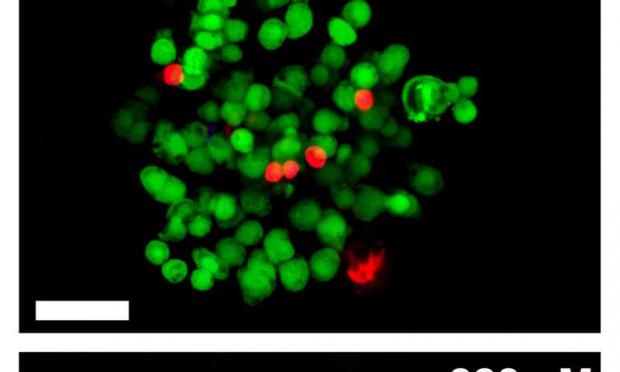
Breaking News
 Losing Chickens? Tools Needed for Trapping Poultry Predators
Losing Chickens? Tools Needed for Trapping Poultry Predators
 Metals Tell the Truth About the Economy
Metals Tell the Truth About the Economy
 RFK Jr. baffled over how Trump is alive with diet 'full of poison,'
RFK Jr. baffled over how Trump is alive with diet 'full of poison,'
 Dr. Peter McCullough Responds To Anthony Fauci Criminal Referral
Dr. Peter McCullough Responds To Anthony Fauci Criminal Referral
Top Tech News
 Superheat Unveils the H1: A Revolutionary Bitcoin-Mining Water Heater at CES 2026
Superheat Unveils the H1: A Revolutionary Bitcoin-Mining Water Heater at CES 2026
 World's most powerful hypergravity machine is 1,900X stronger than Earth
World's most powerful hypergravity machine is 1,900X stronger than Earth
 New battery idea gets lots of power out of unusual sulfur chemistry
New battery idea gets lots of power out of unusual sulfur chemistry
 Anti-Aging Drug Regrows Knee Cartilage in Major Breakthrough That Could End Knee Replacements
Anti-Aging Drug Regrows Knee Cartilage in Major Breakthrough That Could End Knee Replacements
 Scientists say recent advances in Quantum Entanglement...
Scientists say recent advances in Quantum Entanglement...
 Solid-State Batteries Are In 'Trailblazer' Mode. What's Holding Them Up?
Solid-State Batteries Are In 'Trailblazer' Mode. What's Holding Them Up?
 US Farmers Began Using Chemical Fertilizer After WW2. Comfrey Is a Natural Super Fertilizer
US Farmers Began Using Chemical Fertilizer After WW2. Comfrey Is a Natural Super Fertilizer
 Kawasaki's four-legged robot-horse vehicle is going into production
Kawasaki's four-legged robot-horse vehicle is going into production
 The First Production All-Solid-State Battery Is Here, And It Promises 5-Minute Charging
The First Production All-Solid-State Battery Is Here, And It Promises 5-Minute Charging
Cancer-killing hydrogel stays in place until the job is done

The trick is to give it a boost to find and destroy those rogue cells, and that's the focus of the field of immunotherapy. To that end, a new hydrogel has been developed that can be injected directly to the site of a tumor, where it stays to slowly release its payload of immunotherapy drugs for longer.
Put the two into a ring, and the immune system will win every round against cancer. To give itself a fighting chance, the Big C instead focuses its attention on stealth attacks, using a variety of tactics to evade detection by the immune system until it can grow strong enough to overwhelm the body.
Immunotherapy aims to swing the odds back into our favor, re-arming the immune system with new ways to detect and kill cancer cells. These techniques mainly involve extracting a sample of a patient's T cells, genetically engineering them to attack tumors, and returning them to the body. Others may be able to stimulate the system with a single injection, akin to a cancer vaccine.

 Storage doesn't get much cheaper than this
Storage doesn't get much cheaper than this

